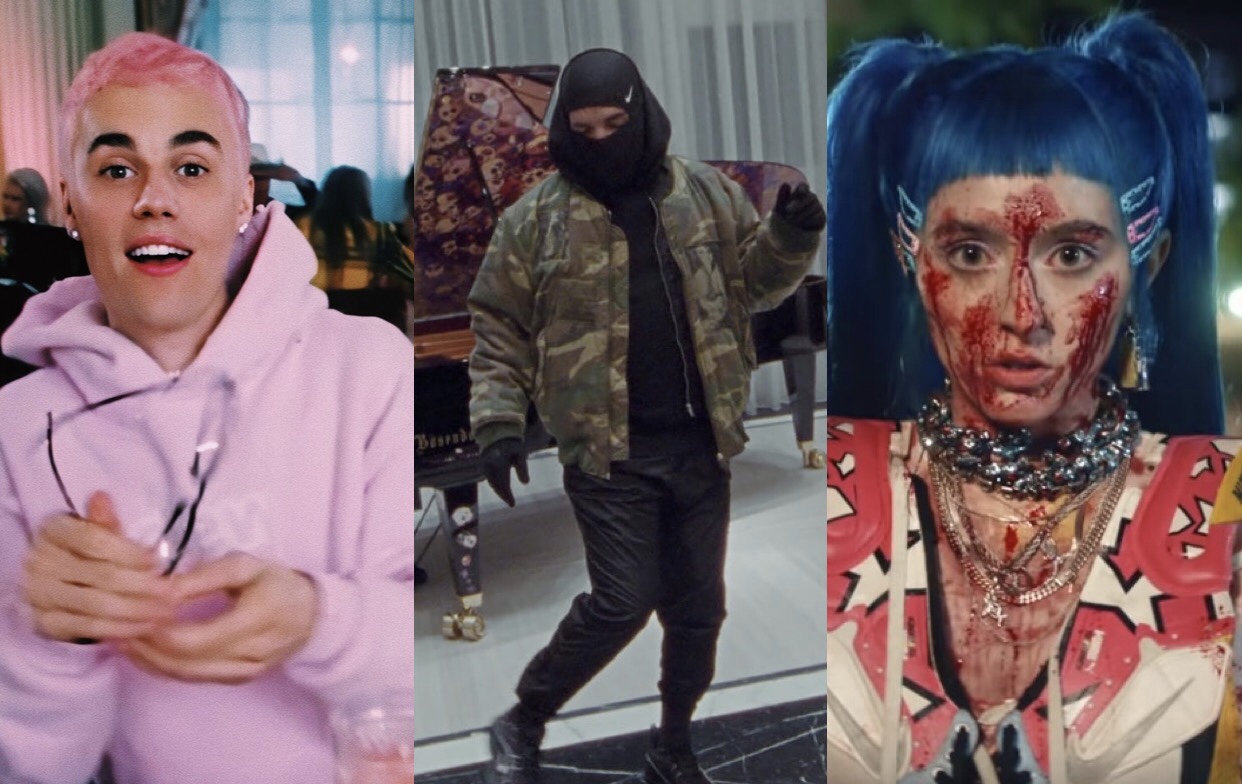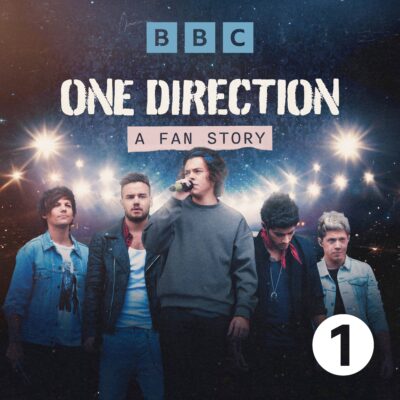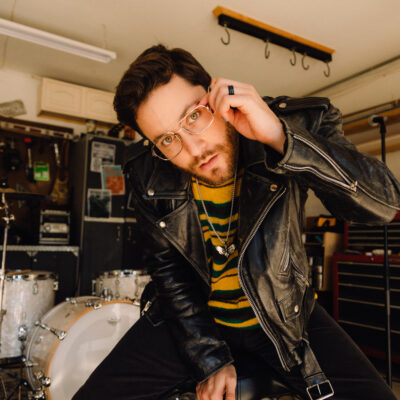The top two songs on the Billboard Hot 100 this week (“Say So,” “Savage”) rose to popularity in large part thanks to viral videos on TikTok, another major turning point for the music industry that is sure to signal copycat promotional strategies and even more dance-friendly tunes on the horizon. But not everyone is ready to embrace this new trend that stans describe as “cheap,” “desperate” and “annoying.”
TikTok, the global social media app with over 800 MILLION daily users, has quickly turned the music industry on its head over the past year. One of its earliest success stories, Lil Nas X‘s “Old Town Road,” broke through on the Hot 100 after thousands of TikTok users started producing comedic videos set to the country-trap song. TikTok’s hand in sending “Old Town Road” up the charts was a big part of the song’s narrative, and it was clear at the time that other record labels would quickly try to mimic its organic success.
Over a year later, TikTok’s role in promoting songs on Spotify, Apple Music and other streaming platforms is bigger than ever. Like any other new social media platform, however, people weren’t initially sure how to wield the power of TikTok. During the aftermath of “Old Town Road,” TikTok had a reputation for signal boosting songs and artists that had yet to break through in the mainstream. This “TikTok effect” would later work its magic on Arizona Zervas‘ “ROXANNE,” Doja Cat‘s “Juicy,” Saweetie‘s “My Type” and countless other under-the-radar tunes in 2019.
The appeal of the TikTok Effect was in its organic engagement. No one could’ve predicted songs like the ones above making it big on the platform, adding another layer of mystery around the TikTok algorithm and the platform’s rapid growth in the US. The market of potential new listeners was unfamiliar, and it felt like major artists were only creating accounts in an attempt to get in on the ground floor while they still could.
But beginning in 2020, artists started to get a grip on how to use TikTok to their benefit – and not everyone was happy with these new trendy promotional strategies. Justin Bieber will likely be remembered as one of the first major artists to launch a lead single with TikTok in mind when he dropped “Yummy” in early January. In addition to heavily promoting the single with an official dance challenge, it sounded as if Bieber and co. were trying to reverse-engineer a TikTok success story with the song’s redundant chorus, buzzy track title and mid-tempo R&B production. Despite TikTok’s well-documented influence on the charts, journalists and Twitter stans alike berated the promotional strategy as a desperate attempt for a hit.
After justin bieber’s wildly desperate PR campaign for Yummy, he’s been beaten by a viral TikTok track.
The teens, they are powerful. https://t.co/CEGg5r7PXj
— Jules LeFevre (@jules_lefevre) January 17, 2020
Justin Bieber is increasingly desperate for ‘Yummy’ to go viral on TikTok https://t.co/dXhyBDFlTg pic.twitter.com/FVIptuB0VJ
— The Verge (@verge) February 3, 2020
Bieber‘s “Yummy” was a massive success in the TikTok realm despite the press backlash, generating over 4.5 MILLION videos using the track on TikTok alone and debuting at #2 on the Hot 100. This wasn’t enough to sway public opinion, though, as artists continue to catch flack today for trying to push their songs on the platform. This most recently happened again with Drake‘s “Toosie Slide,” another track like “Yummy” that sounded as if it was cooked up specifically with dance challenges in mind. The rapper faced criticism in some corners after it was revealed that he had personally reached out to a TikTok dancer to help create a challenge and promote it on the platform.
Toosie, the dancer who helped create the #ToosieSlide, tells @RollingStone that @Drake sent him the song early to record a dance:
“People be trying to get TikTok-ers to do these dances to their songs…they know the power we got. They know that we control the youth & culture.” pic.twitter.com/UfIMOlKSJi
— Pop Crave (@PopCrave) April 3, 2020
Drake new song is so chessy I literally just vomited on myself. I like drake but honestly he staring to be desperate to stay relevant . #TikTok #Drake
— 𝕁𝕒𝕞𝕒𝕒𝕝 ℙ𝕙𝕠𝕖𝕟𝕚𝕩𝕩 (@JamaalPhoenixx) April 10, 2020
Man, Drake has become so boring. “Toosie Slide” is such a lazy song – mediocre beat, low-energy vocals, and desperate use of TikTok to push it to #1. He had a good run but has been coasting for a while tbh.
— beachdude (@beachdude42) April 21, 2020
“Toosie Slide” is a horrible song and Drake only made it so people would make TikTok dances with it. pic.twitter.com/t69aJvy3EY
— Luciano Caliguire (@Cali_76) May 8, 2020
Drake teamed up with a person to create a dance and make it viral then release the song about it… imagine being this desperate for a tiktok hit pic.twitter.com/cj308fPh3R
— 𝙢𝙖𝙧𝙩𝙞𝙣𝙞 (@xoxo_slaylor) April 14, 2020
Stan Twitter’s distaste for “TikTok Songs” has helped create a stigma around the platform that discourages artists from trying to pull a “Yummy,” “Toosie” or “Old Town Road.” If there’s a public attempt to push a song on the TikTok, artists are pretty much guaranteed to receive comments from stans describing the move as “desperate” or “pathetic.” Halsey also received her fair share of hate when she sent her Marshmello collaboration, “Be Kind,” to TikTok star Charli D’Amilio ahead of its release.
#TikTok star @CharliDAmelio has shared the first snippet of @Halsey’s & @MarshmelloMusic’s new collaboration, #BeKind coming out tonight. 🌼
— Pop Crave (@PopCraveMusic) April 30, 2020
we have gotten to a time where an app determines the success of songs… i can’t
— emrah 💍(fan account) (@skinnysel) April 30, 2020
getting tik tok stars to promote a song💀💀
— s (fan acc) (@ARlSLOVER) April 30, 2020
Artists have always flocked to popular social media platforms to promote their music, but TikTok is clearly different than Twitter and Instagram. What stans seem to take the most issue with is the idea of an artist creating a song specifically with TikTok in mind. Essentially, stans are worried that artists will water down the quality of their music just for the sake of more views on TikTok.
The negativity directed at “TikTok Songs” is shortsighted, and it’d be especially foolish for artists to ignore the platform’s influence considering its current trajectory. Most notably, TikTok’s parent company ByteDance has already launched its own streaming service, Resso, in India and Indonesia this March. The service is described as a “social music streaming app” with features aimed at Gen Z to distinguish itself from Spotify and other competitors.
Similar to Tiktok, early impressions of Resso highlight the app’s interactive features that marry the worlds of music and social media. Users can interact with real-time lyrics, comment under individual songs, and create GIFS, images or video clips that will run in the background while a track is playing. If the version that hits America is anything like this, we’re looking at a new streaming platform where users can find the social commentary of Twitter and the accessible streaming of Spotify in one go-to place.
Resso could be a huge game changer thanks to its connection with TikTok. While the apps are separate, parent company ByteDance will do everything it takes to attract its strong base of TikTok users to the new service. This is an especially daunting prospect for Spotify considering that TikTok already has hundreds of millions more daily active users (800m vs. 286M). Resso would already be hugely popular and even on par with Spotify if just a fraction of TikTok users moved to the new service.
ByteDance has the opportunity to completely revolutionize the streaming game if they can convince TikTok users to download Resso. Unlike Spotify and Apple Music, Resso promises an interactive experience where users are able to give a song new meaning in popular culture. In an era where memes and dance challenges have helped launch songs to the top of the chart, Resso is creating a platform that makes music more of a social event than ever.

Imagine if Spotify was the place you listened Doja Cat‘s “Say So” and discovered the memes/videos that helped drive it up the charts? TikTok has already popularized a similar model, and Resso is aiming to fill the gap.
If ByteDance can deliver on its promises with Resso, then it only makes sense for artists like Drake, Bieber, Halsey and more to continue investing in the TikTok community. This will mean more dance challenges, more content on personal artist pages, and even collaborations with famous TikTok’ers. If that annoys you, then you probably won’t enjoy Resso. But unfortunately for the haters, it doesn’t look like there’s anything stopping the TikTok freight train anytime soon.
It’s not really a question of if the TikTok model will take over the music industry, but rather when.
Are you interested in downloading Resso when it hits the United States? Share your thoughts with us on Twitter at @PopCrave!





